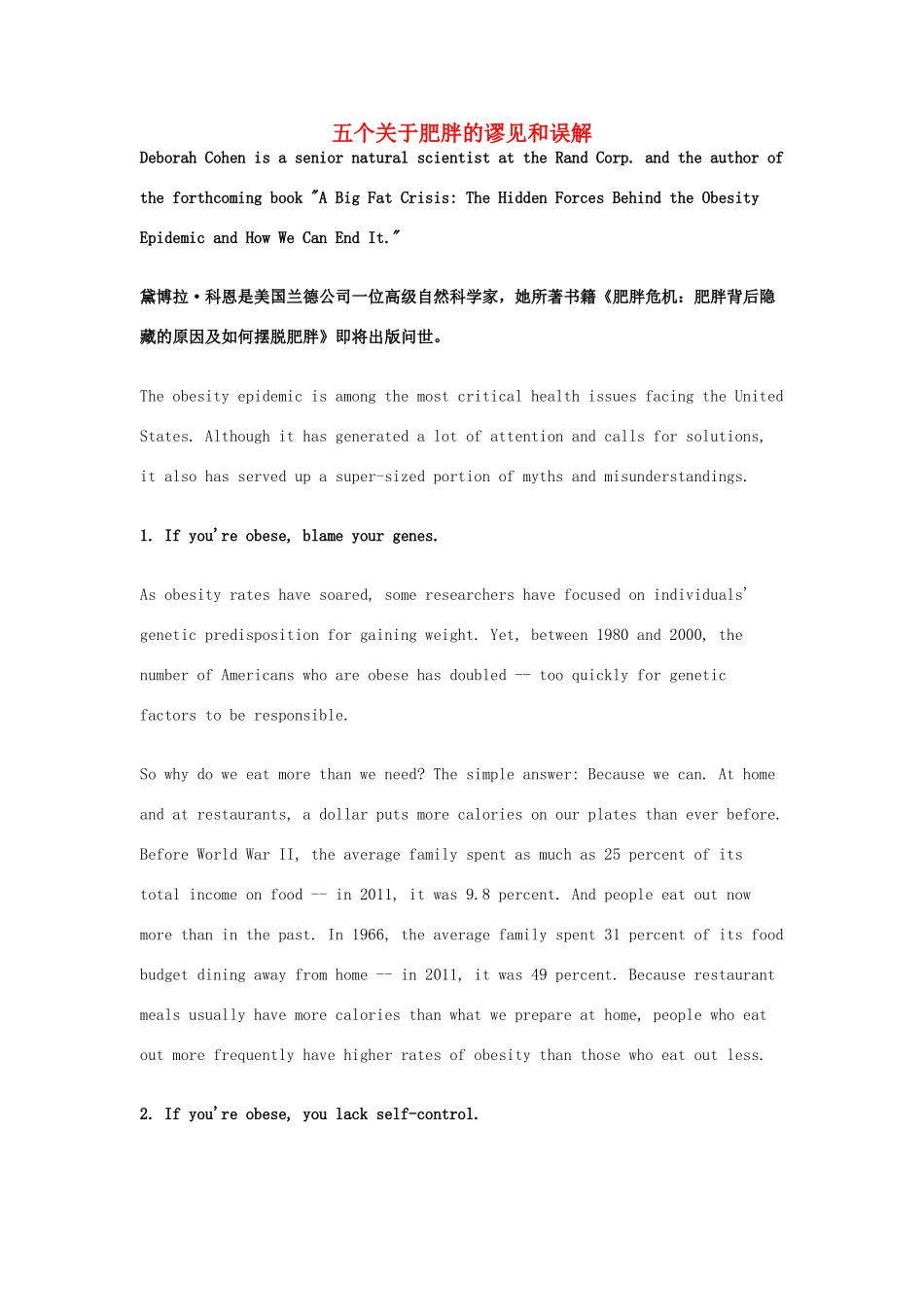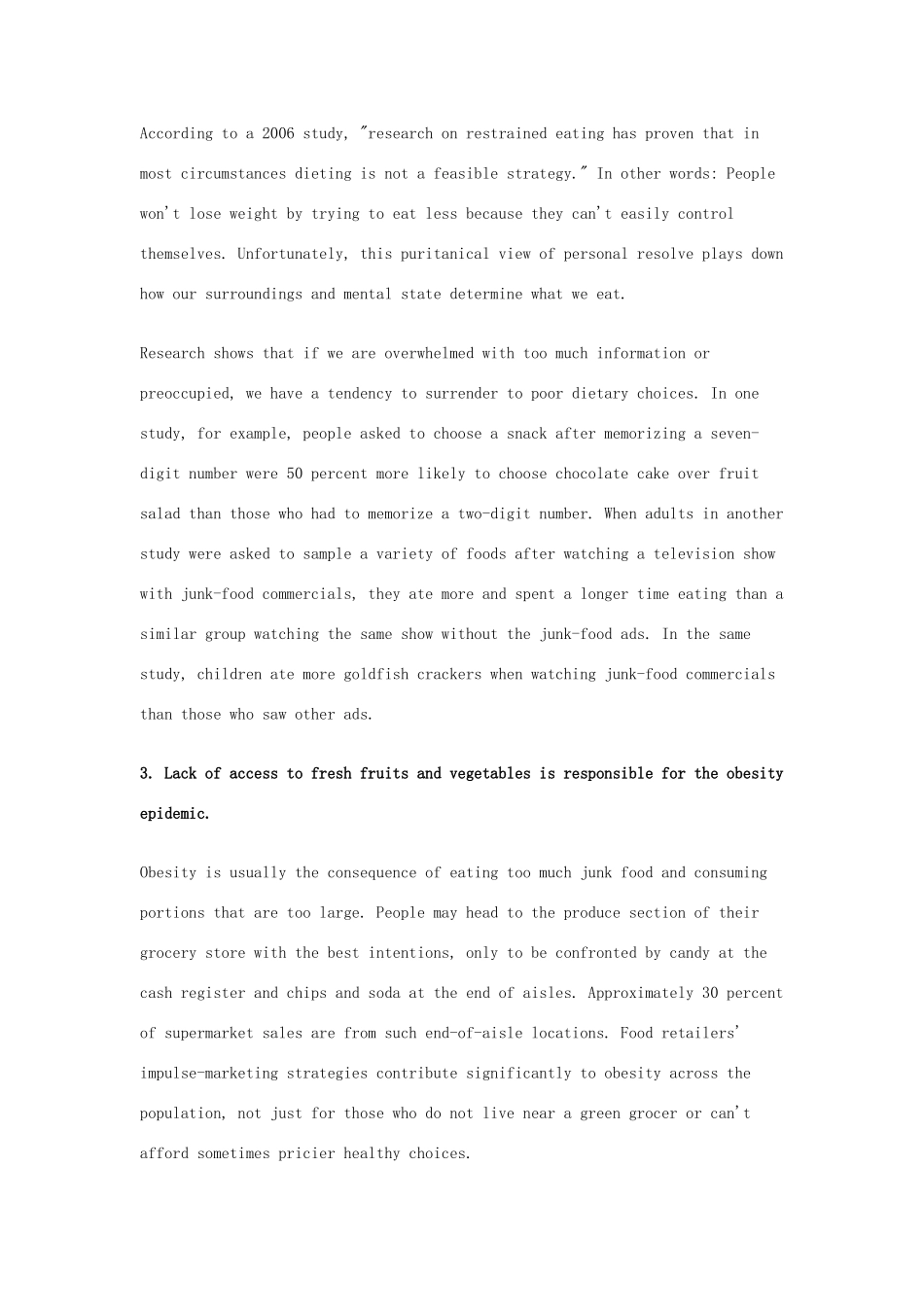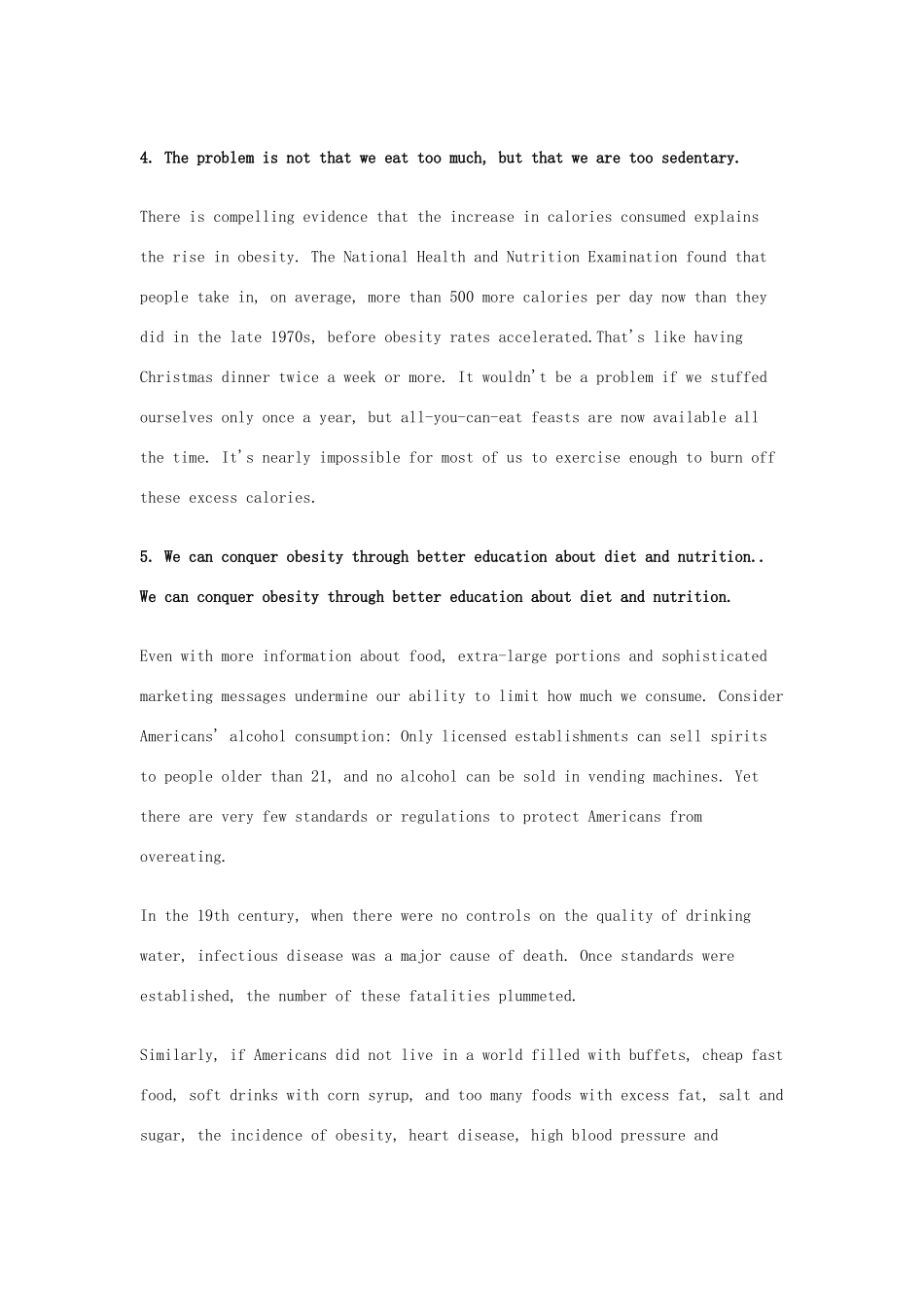五个关于肥胖的谬见和误解Deborah Cohen is a senior natural scientist at the Rand Corp. and the author of the forthcoming book "A Big Fat Crisis: The Hidden Forces Behind the Obesity Epidemic and How We Can End It."黛博拉·科恩是美国兰德公司一位高级自然科学家,她所著书籍《肥胖危机:肥胖背后隐藏的原因及如何摆脱肥胖》即将出版问世。 The obesity epidemic is among the most critical health issues facing the United States. Although it has generated a lot of attention and calls for solutions, it also has served up a super-sized portion of myths and misunderstandings. 1. If you're obese, blame your genes. As obesity rates have soared, some researchers have focused on individuals' genetic predisposition for gaining weight. Yet, between 1980 and 2000, the number of Americans who are obese has doubled -- too quickly for genetic factors to be responsible. So why do we eat more than we need? The simple answer: Because we can. At home and at restaurants, a dollar puts more calories on our plates than ever before. Before World War II, the average family spent as much as 25 percent of its total income on food -- in 2011, it was 9.8 percent. And people eat out now more than in the past. In 1966, the average family spent 31 percent of its food budget dining away from home -- in 2011, it was 49 percent. Because restaurant meals usually have more calories than what we prepare at home, people who eat out more frequently have higher rates of obesity than those who eat out less. 2. If you're obese, you lack self-control. According to a 2006 study, "research on restrained eating has proven that in most circumstances dieting is not a feasible strategy." In other words: People won't lose weight by trying to eat less b...


